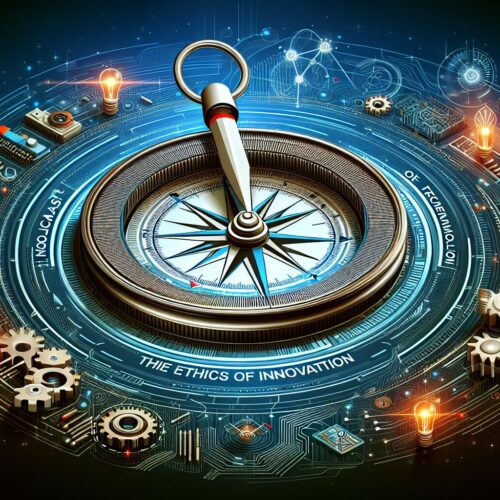In an age where technological advancements are rapid and transformative, it is imperative to pause and reflect on the ethical implications of the tools we create. The intersection of ethics and technology is a complex realm that demands our attention and contemplation. As we witness the proliferation of artificial intelligence, big data, and surveillance technologies, it becomes crucial to establish a moral compass to guide our innovation.
Technology, in its essence, is neutral. It is the intentions and actions of humans that shape its impact on society. As we design and deploy new technologies, we are faced with ethical dilemmas that require us to consider the consequences of our choices. Issues such as data privacy, algorithmic bias, and the automation of labor raise profound questions about the values we prioritize in our technological development.
One of the fundamental principles of ethical technology is respect for human dignity. As we design systems that impact people’s lives, we must ensure that they uphold individual rights and freedoms. Technologies that infringe on privacy, perpetuate discrimination, or exploit vulnerable populations are at odds with this principle. Upholding human dignity requires us to prioritize the well-being and autonomy of individuals in our technological innovations.
Transparency and accountability are also key tenets of ethical technology. As algorithms and AI systems become increasingly complex, it is essential for developers and organizations to be transparent about how these technologies operate. Users should have a clear understanding of how their data is being used and be able to hold companies accountable for any potential harms caused by their technology. Without transparency and accountability, the power dynamics between technology creators and users become skewed, leading to potential abuses of power.
Furthermore, the concept of justice must guide our technological decision-making. We must consider the distribution of benefits and harms that technology brings, ensuring that the benefits are equitably shared among all members of society. Technologies that exacerbate existing inequalities or reinforce discriminatory practices are unjust and undermine the common good. By centering justice in our technological development, we can strive towards a more equitable and inclusive future.
In navigating the ethics of technology, we must also consider the long-term impacts of our actions. The choices we make today will shape the world we inhabit tomorrow. We must adopt a forward-thinking approach that anticipates potential risks and mitigates harm before it occurs. By considering the ethical implications of our technology from the outset, we can proactively address challenges and build a more sustainable and ethical technological landscape.
In conclusion, the moral compass of technology is essential for guiding our innovation towards a more ethical and human-centered future. By upholding principles such as respect for human dignity, transparency, accountability, justice, and foresight, we can ensure that our technological advancements serve the common good and contribute to a more just and equitable society. As we stand at the crossroads of technological progress, let us navigate with intention and integrity, mindful of the ethical implications of our choices.
